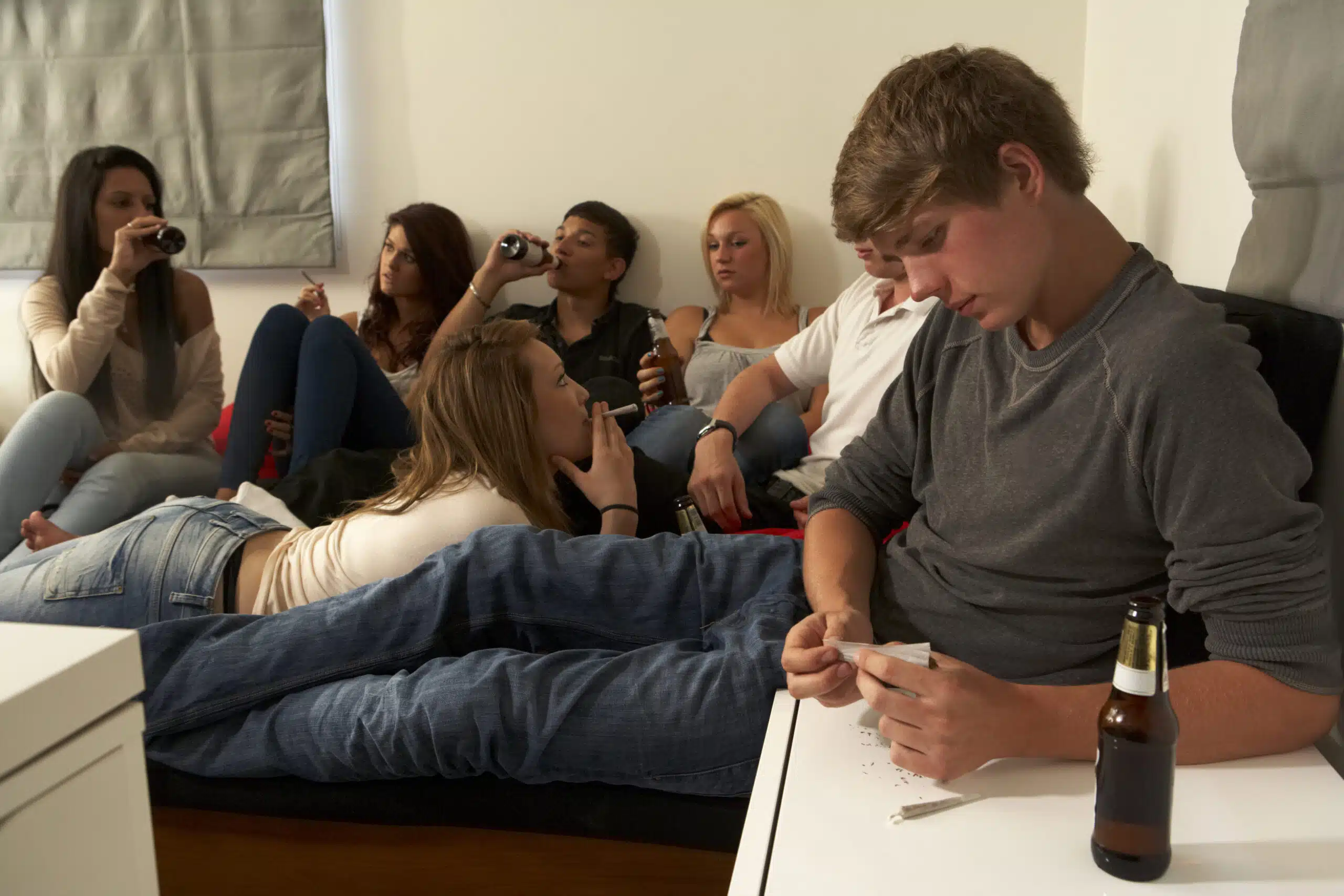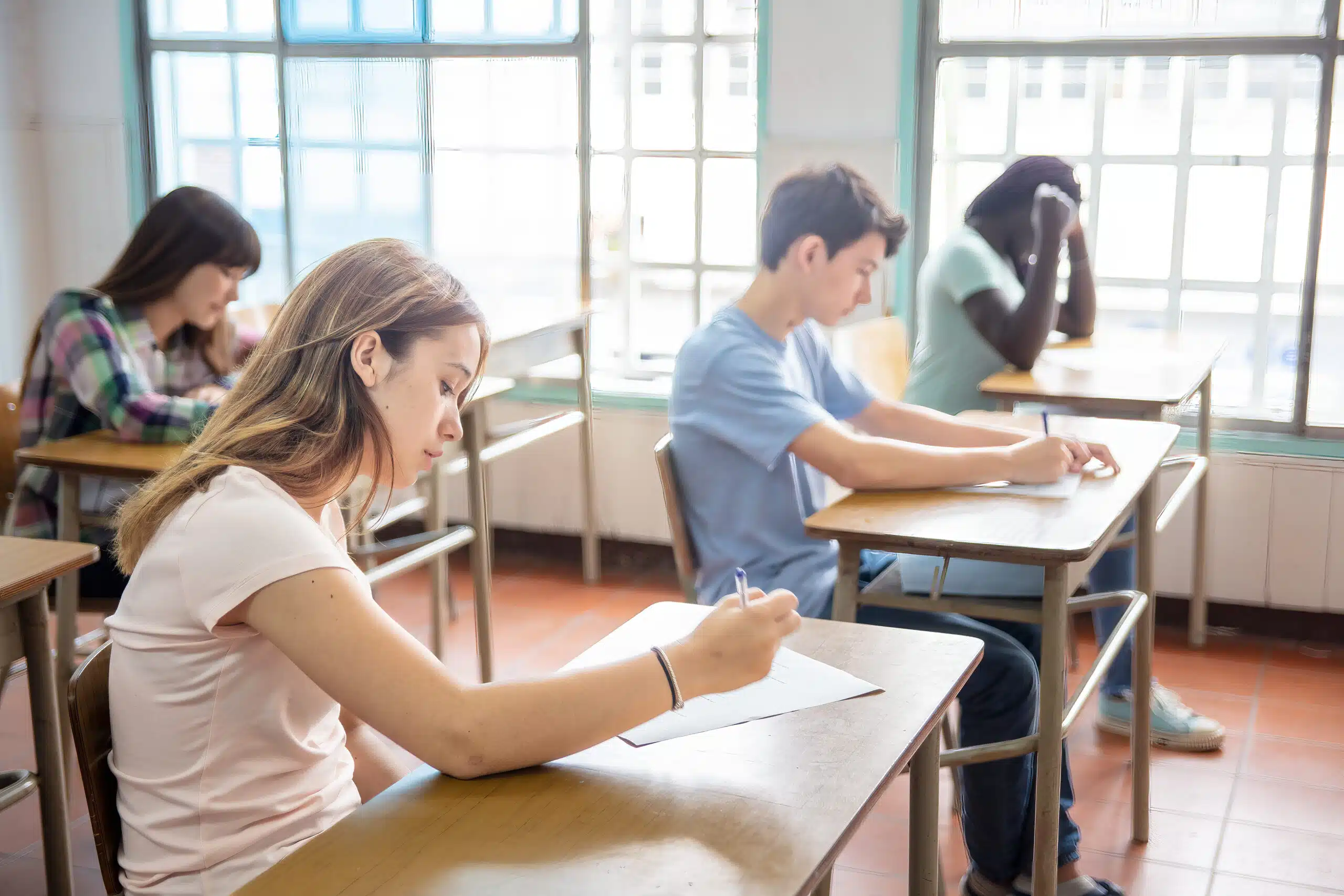
Teen Learning Disabilities & Therapy Options
- School
- June 3,2025
- BY Beachside Teen Staff
- 0 Comments
Learning Disability Therapy
Learning disabilities can affect your child’s academic achievement, emotional health, self-esteem, and behavioral presentations. Early interventions targeted to meet your child’s needs lead to long-term success. Our learning disability therapy helps adolescents build their academic skills as well as their emotional resilience and self-confidence.
Beachside Teen Treatment Center is here to help adolescents aged 12-18 improve their mental, emotional, and behavioral health. Call us today at (888)254-0916 to learn more about our therapeutic education program in Los Angeles, CA.
What Is Learning Disability Therapy?
Learning disability therapy combines educational programming with therapeutic support for children and teens who struggle with a learning disability.
Therapy for learning disabilities focuses on more than academic learning and overcoming a disability. It also addresses some of the unseen aspects of living with a learning disability.
Teens with learning disabilities often struggle with emotional and behavioral health challenges as well. They may even develop a co-occurring mental health disorder, like anxiety or depression. Some teens even develop an addiction as a result of abusing drugs or alcohol to cope with their symptoms.
That is why our teen learning disability support focuses not only on academic progress but on building your child’s self-esteem and emotional wellness as well.
What Are the Goals of Therapy for Learning Disabilities?
When it comes to treating a learning disability, everyone has different needs. Some teens struggle more with behavioral issues, whereas others need help improving decision-making and organizational skills. Therefore, each child in a learning support program develops an individualized goal plan with their teachers, parents, and support team.
The following are some the most common goals of therapy for learning disabilities:
- Improve reading, writing, or math skills: An overall improvement of academic performance is one of the primary goals of learning disability therapy. Kids with learning disabilities are capable of success when they have the right support.
- Strengthen memory and attention: When the regular classroom fails to meet the needs of students with learning disabilities, students might “check-out” mentally and stop trying. However, with consistency and support, students can improve cognitive skills like memory and attention.
- Boost confidence and self-advocacy: Poor academic performance due to a lack of proper support can leave a child feeling helpless. But, with the right support, teens can build their confidence and learn when to advocate for themselves to have their needs met.
- Support emotional and social development: Learning disabilities impact a teen’s overall emotional and social development. For instance, they may be held back in their grade and struggle to find friends among younger children. Therapeutic educational support helps teens develop healthy coping and social skills besides focusing on academic skills.
Common Types of Learning Disabilities in Teens
According to the American Psychiatric Association (APA), “An estimated 5 to 15% of school-age children struggle with a learning disability.”
These disabilities can be mild, moderate, or severe. Getting help early leads to the best outcomes and decreases the chances that a learning disability will worsen. Therefore, it’s important to understand the common types of learning disabilities to recognize if your child has one.
The following are some of the most common types of learning disabilities in teens:
Dyslexia
Dyslexia is the most common type of learning disability. In fact, an estimated 80% of those with a learning disability have dyslexia, according to the APA. Furthermore, the International Dyslexia Association (IDA) states that “perhaps as many as 15–20% of the population as a whole—have some of the symptoms of dyslexia.”
Dyslexia affects reading fluency, comprehension, writing, spelling, and speech and may occur along with other learning disabilities.
Dyscalculia
Dyscalculia affects a person’s ability to understand mathematics and number-based information. The symptoms usually appear during childhood, however, some people may have dyscalculia into adulthood and not even know it.
Signs of dyscalculia in teens includes the following:
- Struggling with or an inability to count backward
- Difficulty solving word problems
- Problems understanding and converting fractions
- Trouble breaking down math problems into multiple steps
- Struggling when measuring items/quantities or making change with currency
Dysgraphia
Dysgraphia is a neurological condition that affects a person’s ability to turn their thoughts into written words. This is because dysgraphia affects parts of the brain responsible for multiple skills like spatial planning, writing, spelling, and other fine motor skills.
Teens with dysgraphia will struggle with the following:
- Using proper grammar
- Writing complete sentences (without omitting words)
- Remembering how letters are formed
- Spelling
- Controlling a writing tool
- Putting words in the correct order
ADHD and Executive Function Disorders
Although attention-deficit/hyperactivity disorder (ADHD) is not necessarily a learning disorder, it is often associated with other learning disabilities and causes learning challenges. But ADHD doesn’t cause deficits in specific learning areas like dyslexia, dyscalculia, or dysgraphia. Still, teens with ADHD can benefit from a therapeutic academic environment to support their challenges.
Symptoms of ADHD include the following:
- Unable to pay attention to details resulting in mistakes
- Appearing not to listen when other people are speaking
- Starting tasks, but not completing them
- Losing or misplacing important items (ex. keys, wallet, eyeglasses)
- Forgetting to complete daily tasks or frequently missing appointments
- Fidgeting or unable to sit still without tapping hands or feet
- Frequently interrupting others
Similarly, executive function disorder is also not considered a learning disability, but it can disrupt your teen’s academic performance.
Teens with executive function disorder (also called executive dysfunction) will have some or most of the following symptoms:
- Trouble focusing on one thing at a time
- Easily distracted
- Difficulty planning and executing a project
- Problems with impulse control
- Speaking before thinking without considering other people’s feelings
- Struggling with motivation to complete challenging tasks
Auditory or Visual Processing Disorders
Teenagers with visual processing disorder may have difficulty following along in classes that require them to handle scientific or sports materials. Physical education and chemistry are two examples of classes that these teenagers may have difficulty with.
Teenagers with auditory processing disorders may have trouble understanding lectures or focusing in classes where there’s a lot of chaos. They may appear to be easily distracted by friends and socialize often in class. However, their distracted behaviors are caused by their difficulty in processing auditory information.
Does My Teen Need Learning Disability Support? (Signs Your Child Needs Help)
The following are signs that your teen needs learning disability support:
- Lowered self-esteem, especially related to poor academic performance
- Acting out and misbehaving
- Increased anxiety, particularly with school work
- Reduced motivation
- Increased sadness or irritability
- Physical symptoms like headaches or stomach aches
Therapy Options for Teens with Learning Disabilities
There are several treatment options for learning disabilities including the following:
Educational Therapy
Educational therapy involves individualized academic coaching and skill-building. This type of learning disability therapy focuses on specific weaknesses related to your teen’s learning disability. For instance, teens with dysgraphia get coaching in grammar and written language.
Occupational Therapy
Occupational therapy may be beneficial for teens with dysgraphia or sensory processing issues. Oftentimes, these types of disabilities result in difficulty with physical skills or balance. Occupational therapy works with teens to help them overcome these challenges to gain control over their hand and body movements.
Speech and Language Therapy
Speech therapy helps children with language-based issues such as dyslexia and auditory processing disorder. Through speech therapy, teens can learn to understand what they hear and read as well as how to properly communicate.
Cognitive-Behavioral Therapy (CBT)
Cognitive-behavioral therapy (CBT) may be beneficial for teens who are experiencing the secondary impact of their learning disabilities such as depression, impulsivity, anxiety, emotional instability, and poor behavior. CBT is a type of psychotherapy that helps teens identify and challenge unhealthy thoughts so they can improve their moods and behaviors.
Executive Function Coaching
Executive function coaching offers teens the solutions for executive brain functions, such as problem-solving, decision-making, and goal setting. Oftentimes, teens with learning disabilities struggle with these higher-order cognitive functions.
How Learning Disability Therapy Helps Teens
Academic interventions for teens with learning disabilities can help in the following ways:
Academic Benefits
The academic benefits include helping teens build skills in deficit areas related to their disability. In addition, learning disability therapy helps teens identify their academic strengths, which often become overlooked in a standard classroom. This approach boosts school engagement and achievement.
Emotional and Social Benefits
As teens overcome the skill deficits of their disability, they gain self-confidence. Learning disability therapy also reduces the anxiety and depression linked to school struggles. Furthermore, teens build social skills that improve their peer relationships and self-advocacy skills.
How Parents Can Support Teens With Learning Disabilities
The following steps can help parents get their teen the learning disability support they need:
Get a Full Evaluation
If you suspect your child has a learning disability, it’s best to get an evaluation from a school psychologist or educational specialist. A psychiatrist can also help identify and diagnose learning disabilities as well as any additional co-occurring disorders. Furthermore, these professionals can verify if your teens symptoms point to a learning disability or something else.
Getting an evaluation is a vital step to direct your child’s treatment plan. Additionally, some school programs or outpatient therapeutic education programs require a diagnosis from a mental health professional.
Advocate at School
Section 504 of the Rehabilitation Act of 1973 prohibits discrimination due to disabilities in programs or activities receiving federal financial assistance from the U.S. Department of Education. Thus, if your child has a learning disability, they are entitled to an education at a public school if it is federally funded.
For children and teens with learning disabilities, parents, teachers, behavioral health professionals, and other advocates might create an Individualized Education Plan (IEP). These plans include specific objectives and goals for your child as well as who is responsible for each objective. An IEP can be implemented in the school, and it may even include outpatient programming if the school isn’t able to accommodate your child’s needs.
Encourage Strengths—Not Just Challenges or Problems
It’s important to support your teen’s strengths when they struggle with a learning disability. Oftentimes, when teens struggle, the focus goes on fixing skill deficits or problematic areas. These challenges may obscure the things that are going well when parents don’t take a step back from time to time.
Remember that your teen has strengths too, and these need to be acknowledged and celebrated. Sometimes, you’ll notice these strengths outside of academics, like during sports, art, or music. Strengths like creativity, cooperation, persistence, and problem-solving can help your teen build self-confidence as they overcome their academic skill deficits.
Teen Learning Disability Support at Beachside
We’re proud to offer therapeutic academic interventions for teens in our behavioral health programs. Our approach sets teens up for a brighter future beyond the classroom.
Our Approach
At Beachside Teen Treatment Center, we take an individualized, student-centered approach to our therapeutic education program. This includes drafting an individualized plan for your teen with consideration of emotional and behavioral health needs as well.
In addition, we collaborate with parents, teachers, therapists, and other advocates to address and understand your child’s needs. This also ensures seamless transitioning to your teen’s regular academic programming by working with your child’s school.
Lastly, at our program, we have licensed therapists available to support your teen when emotional or behavioral challenges, like frustration or anxiety, come up during academic programming.
Helping Teens Thrive Beyond the Classroom
Our program will also help your teen thrive beyond the classroom in their everyday lives and in the future. We offer life skills training that can help your teen with things like organization, completing chores, creating goals, and managing finances. In addition, this will include planning for the future, like preparing for college or pursuing a career path.
Emotional resiliency built during our program will also help your teen cope with stressors and challenges throughout their lives.
Find Therapeutic Teen Learning Disability Support Today
A learning disability doesn’t define your teen’s future success. With the right support and early interventions, they can build confidence, skills, and a powerful sense of self.
Contact Beachside Teen Treatment Center in Los Angeles, CA, today to learn how we can help.
Take Our Free ADHD Test
Are you wondering if your teen has ADHD? Take our self-test for parents to assess whether or not your child has signs of ADHD.




